A word from Ruth for our wounded world
A word from Ruth for our wounded world
Dedicated to health care givers, in particular to the nurses we know: Ayelet Erel, Naomi Moran, Jihad Abu-Ramadan, Marci Resnikoff, Amy Kirkland, Einat Bitran, Varda Spiegel and to physical therapist Jackie Resnick
When I began writing this piece last week, with Shavuot, the Feast of Weeks, approaching, the sky over my mountain home was a cloudless, sparkling sapphire and record-breaking heat seared the Holy Land. Just a few days later, the wind rattled my window, the sky turned black and a downpour knocked many tiny budding grapes from the vine that Abu Razi, our builder, gave us from his own vineyard in the village of Bidu across the divide, over three decades ago.
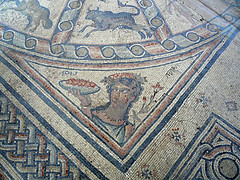
What counts
In Bible days sudden weather changes in the Holy Land between Passover and Pentecost (the Feast of Weeks) engulfed farmers in uncertainty up and down the ancient supply chain. That’s how the tradition of “counting the Omer” (grain sheaf) got started – counting off each day between the two holidays, with trepidation, hope and prayer, until the sheaves stood safely bound in the field.
Harvest home is a central theme in the book of Ruth, which is read in synagogues the world over on the upcoming holiday. This year, this season of crisis and uncertainty, of fear for livelihood and life, one Hebrew word in Ruth attracted my attention: chesed.
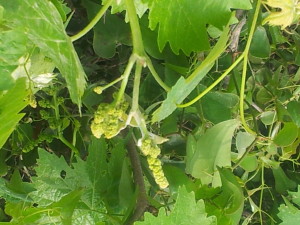
Ruth not only embodies strength, defiance, love, loyalty. and hope, she personifies chesed, a word that appears repeatedly in the text. In fact, the literary and women’s studies scholar Judith A. Kates tells us that the book of Ruth has traditionally been called “the book of chesed.” What does it mean? English doesn’t seem to quite capture the sense of chesed in a single word. For example, in my mother’s favorite verse, Micah 6:8, the translation settles for “mercy.” Some modern-day scholars animate their translation: “deeds of kindness,” “acts of benevolence.”
Arik and I have been blessed to see chesed in full bloom in those who care for him, and in others whose stories we hear so often these days – health care givers the world over. As Ruth clung to Naomi, they cling to their patients, often at great risk to themselves, seeing the living through the worst, or comforting the dying when their families are barred from the bedside. They embody chesed the way Bible scholar Leila L. Bronner described it – as a “heroic concept.”
Rabbi Zeira taught that the book of Ruth was written so we would know “how great is the reward of those who do deeds of kindness” (Ruth Rabbah 6:14). But if I were in Zeira’s ancient study hall, I might ask him whether the whole point of chesed is that reward is neither required nor expected. I’m with Kates on this, who tells us that chesed means “acts of care and love that go beyond obligation and to a quality of generosity, of an abundance in giving.” Moreover, based on the spirit of the the Psalm 89:3* “Forever is chesed built…”– that is, there is no world at all without deeds of lovingkindness.
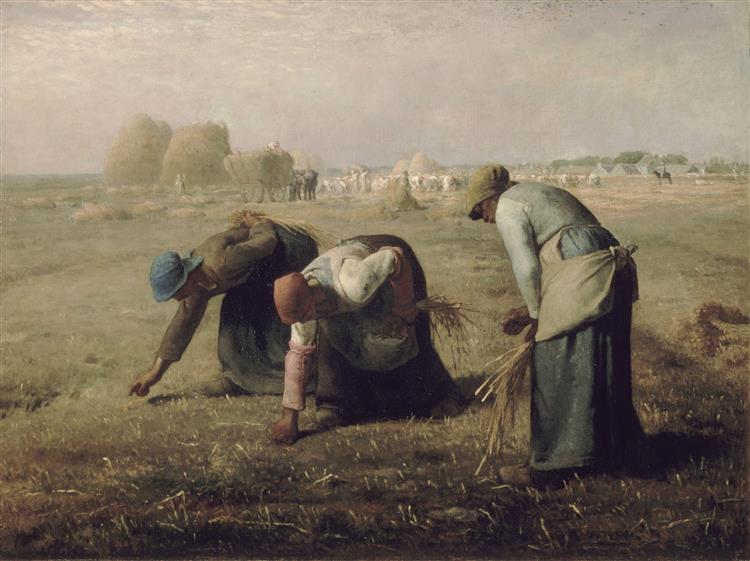

*Verse 3 according to the Hebrew Bible. According to many English translations this is verse 2. My thanks to Gilla Treibich for an illuminating discussion of this verse.
Want to know more?
Feinberg Vamosh, Miriam. “It’s about Then, it’s About Now, it’s About Time.”
Kates, Judith A. 1994. “Women at the Center: Ruth and Shavuot.” Pp. 187–198 in Reading Ruth: Contemporary Women Reclaim a Sacred Story (J.A. Kates and G.T. Rei7mer, eds).
Rahat Meir, Sivan. The Chesed of the Scroll of Ruth. http://leeba.org.il/9573
(Hebrew). Ziegler, Yael. “Ruth.” https://www.google.com/search?q=Yael+Zeigler+Ruth+Hesed&rlz=1C1EJFC_enIL851IL851&oq=Yael+Zeigler+Ruth+Hesed&aqs=chrome..69i57j46j0j46j0j46j0.4543j0j7&sourceid=chrome&ie=UTF-8

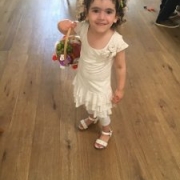
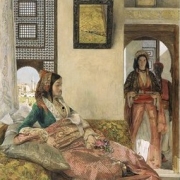
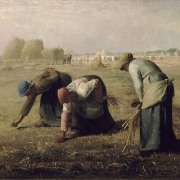
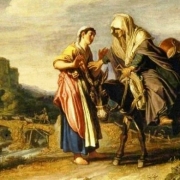
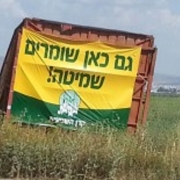
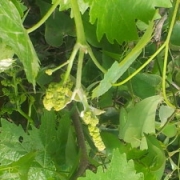
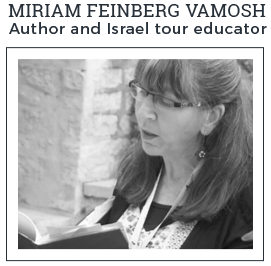
Thank you for this inspiration. My mother’s name was Ruth and my daughter is an RN working at Beth Israel Hospital in Boston. She overcame her fear to work with Covid patients in the ICU even though she has a young family at home. She just tested negative so I think God has been watching over her. I know she does her work with an abundance of chesed, as Kates describes. Hope you and your family are well.
And thank you, Althea, for your response. I’d like to think your mother Ruth is watching over your daughter. You daughter is precisely the kind of person I had in mind when I dedicated that blog post. Yes, thankfully, we are well. Best wishes to all.